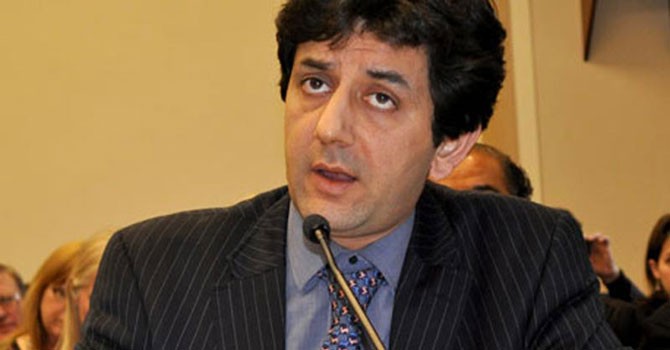

The News on Sunday: Is the Sindh Festival about politics or culture?
Ali Dayan Hasan: The Sindh Festival is primarily a celebration of history, culture and heritage. It aims to preserve and advance the same.
In the face of an armed onslaught, such a statement of cultural assertion is of course, political. Extremists want to define who we are and to take away the power from us to do so. The Taliban and affiliates are adept at using cultural destruction as a means of asserting ideological control.
If Bilawal Bhutto-Zardari is using his political capital to fight this, it can only be for the better. Other politicians should do so too and one hopes they will. Political support and ownership of such initiatives across Pakistan would be welcome.
TNS: Do you think a cultural celebration or propagation can have meaningful impact of the kind you suggest?
ADH: I think it is a well-intentioned attempt to give culture and history a more central place in the national conversation. It is identity politics at its inclusive, tolerant best. Personally, I am from the province and identify with the cultural complexity the festival aims to present. I see it as Sindh in conversation with itself and the rest of Pakistan. This conversation was long-overdue anyway. The festival’s mix of tradition and fusion presents an opportunity to see Sindh as a diverse living dynamic region rather than just a function of clichés about feudalism and ethnic fault-lines. In fact, it deploys culture and its expression to cut through and make redundant the politics of exclusionary ethnicity and the "urban-rural divide".
TNS: What evidence is there to suggest that the festival attempts to overcome ethnicity or that it can in fact succeed in doing the same?
ADH: I think the festival presents a generational response to questions of history and identity. It assumes that young people -- urban and rural -- in Sindh can be united through common goals and aspirations. They appreciate history, art, film along with their pre-Islamic and Sufi heritage. It is simple: here you have an event that begins by taking Karachi to Mohenjo-Daro and then goes back and forth between the rest of Sindh and its epicentre in Karachi. It does not see culture in terms of ethnic parochialism but inclusivity.
Ali Aftab Saeed and Beygairat Brigade, young men from Lahore, have sung in Urdu the most joyful celebration of Sindh heard in recent times. Ali Gul Pir has reinterpreted his fabulous satire "Waderay ka beta" into the aspirational "Pakistan ka beta". And in "Super Saeen" he both mocks and reinvents perceptions surrounding the word "Saeen". It appears Sindhis can rap as well as appreciate the Kafi. This rejection of geographical, ethnic and linguistic divisions is both unprecedented and desirable. And it is expressed through popular cultural signifiers that have the capacity to long outlive the two-week long event.
TNS: The opening ceremony at Mohenjo-Daro caused some controversy. Wasn’t it irresponsible of the organisers to risk harm to the fragile heritage site by holding a public event there?
ADH: I am neither an archaeologist nor a conservationist so I am not equipped to offer an informed opinion. But I can tell you that at the Sindh Festival curtain-raiser at Mohatta Palace Museum, one of the speakers was Professor Michael Jansen, a leading international expert on Mohenjo-Daro and Unesco’s senior advisor on Pakistan’s world heritage sites. Given Professor Jansen’s involvement, his stature and his affiliations, it would be reasonable to assume due diligence by the organisers and considered approval by the expert.
In any event, all appears to be well as the site has reopened to the public, been photographed and no damage has been reported. I think there is a silver lining to this: we know that we had 20 years or so to save Mohenjo-Daro before the opening ceremony and we have 20 years or so now. So, let’s start.
TNS: What do you think this festival says about the political leadership potential of Bilawal Bhutto-Zardari?
ADH: As I am not into crystal-gazing, I cannot say what it means politically for Bilawal Bhutto. Certainly, between now and 2018, he has a long way to go and it remains to be seen if he can sustain this outreach and if it will translate into electoral gain. In any case, good governance is a different beast from good politics. And of course, the PPP’s governance record leaves a lot to be desired. But as a Karachi-ite by birth, and an individual whose family has been devoted to sustaining and nurturing culture and tolerance through education in the city and the province for generations, I am grateful for the Sindh Festival, the platform it provides and the values it espouses.
Read also: Politics or culture